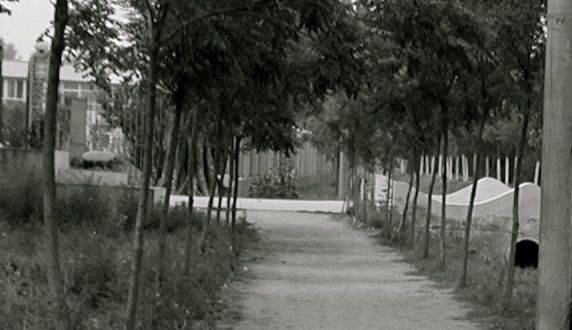I wrote this on June 12, 2005, inspired by what I saw on C-SPAN that day. Reposting because we need such inspiration during these times.
Most of us, when overcome by unmistakable feelings of disconnect from our surroundings, experience a sense of inner agitation. In such moments, feeling homeless, rootless, we say this is “right” and that is “wrong.” We become emphatic, as if it will release us from the disconnects we experience.
But this disconnect, this inner agitation, seems to persist despite our emphatic beliefs of right and wrong. This feeling, instead of dissolving and disappearing in our “right” and “wrong” beliefs on the issues like political leadership, seems to continue to gnaw at us. It still lingers in our heads and hearts, in search of home.
Where is the home for this feeling, for this disconnect?
Those of us who were lucky enough to catch a glimpse of “Conversations with Soldiers Wounded in Iraq” on C-SPAN (originally aired March 10, 2005, with subsequent repeat broadcasts) would likely have experienced a glimpse of the very such home.
Here you see a celebration of life at its most intense and its most fullest reach. Here you watch how the four soldiers portrayed here have very nearly died in the mess and blood of war, but who brought a renewal of life into our experience without the ugly melodrama and narcissism that a more self-conscious narrator of the drama, for example a modern day leader, would bring.
To see what I mean, you have to ask yourself: “What were you doing on Nov 12, 2004?”
Because on that day Major Tammy Duckworth, of Illinois Army National Guard, was on a free fall, her Blackhawk helicopter shot over the skies of Iraq.
From her own narrative of the events of that day, “It was actually end of the day, we’ve been flying missions across Baghdad, mostly transportation of equipment. Had a great lunch, bought some Christmas ornaments from the post exchange (it was middle of November). We were ten minutes from getting back to the base when an RPG shot by the insurgents hit the chin bubble, a Plexiglas window under the pilot seat of the Blackhawk.”
Now, as I watched her speak, sitting next to her husband, with the C-SPAN interviewer, her infectious smile, dark beautiful eyes and a gentle face would have you believe she may have just escaped with minor bruises, and wouldn’t “those army folks” be prepared for these sorts of things anyway?
Initial charge exploded between her knees and nicked one of the blades. Instantly they lost the electronics, and the Blackhawk started to descent. Tammy immediately attempted to land the aircraft, little realizing that she lost the foot pedals and her legs. The control panels were gone. When she woke up in the emergency room the right hand was broken. The last thing she remembered was that she saw grass, coming through the chin bubble as they landed, was about 6 ft tall and she remembered thinking, “Wow, that’s really beautiful green grass” before she passed out.
Tammy lost her right leg fairly high. Lost her left leg below the knee to amputation. Her right arm bones were crushed and broken the moment the Blackhawk hit the ground. Doctors at the Walter Reed Army Medical Center, where this C-SPAN interview was taped, rebuilt the arm using metal pins and screws and grafted the tissue taken from her stomach.
Now the only thing she wants is to go back to flying. Her hope is she can start with the civilian sector and eventually gain flight status with the army.
AND then there is Cpl. Michael Oreskovic – US Army, 23 years’ of age. Lost his left arm from shoulder on: “Flopping around somewhere like a chewed up hamburger.” Eleven surgeries he went through, and now uses bio-electric arm.
This is a group of people who describe things that happen to them such as ripped arms, detonations in front of their faces, warm blood pouring down their faces and soaking their clothes, with a gentle smile on their faces. Not a hint of self-pity, not a hint of something lost, just a strange serenity in their faces, a jaded tiredness but a permanent light in their eyes: “Tough situations brings you closer.”
He waits until the question is asked: “Was anybody else injured at all?”
“Yeah, my squad leader died instantly”
When Oreskovic says: “You have to put mission first” it really needs us laypersons to stop and think before we understand what he really means. It means that there is another life that is directly in the line of danger, and putting mission first means protecting this next life is the immediate priority. It is a mistaken perception that putting mission first means forgetting the life that just left us, in some kind of war-mongering fashion.
The casual approach, the self-effacing manner in which these soldiers speak is maddening:
“Tying the shoes and pulling the zipper are the hardest things to do.”
Q: “What do you do when you get frustrated?”
A: “Go work out”
“I wanted to go back to my unit, but everyone says no”
Cpl. Michael Oreskovic describes the possibility of not being in the army in these words: “They probably won’t toss you out the window if you are a special force.”
This phrase, “toss you out the window,” speaks volumes of the loyalty they feel towards their unit. I cannot help but feel that this phrase is a wistful longing to find a home for the disconnect feeling, to find a home where a human being can experience a whole body of higher emotions such as love, sacrifice and looking out for each other, when you are in their company. That’s why a soldier wants to go back. That’s why a solder wants to serve. I think.
There is not a hint of wasted thought, wasted emotion, in this soldier’s thinking. Perhaps it comes from training and being so close to life and death and being part of the forward movement. Here there is no room for thoughts that scrape the bottom of the “about-ness,” no room for the worlds of you and I where we build protective edifices of opinions and ideas of what is right and what is wrong, protecting from the action-at-a-distance.
After all, isn’t this the home we are all searching for, to where this distance, this disconnect, this tragedy-less tin-box of clutter in our minds, can return to, and just, be?


